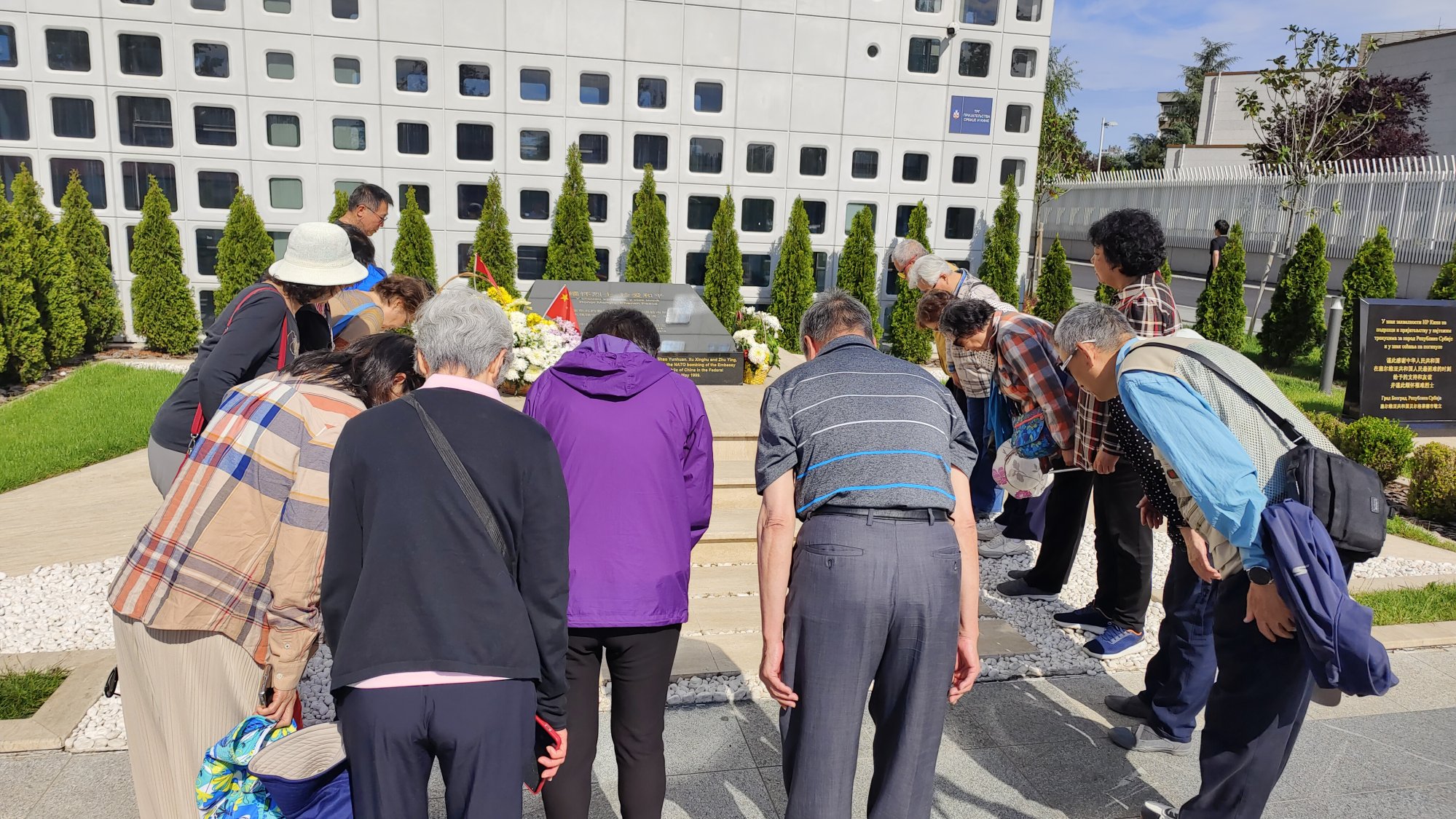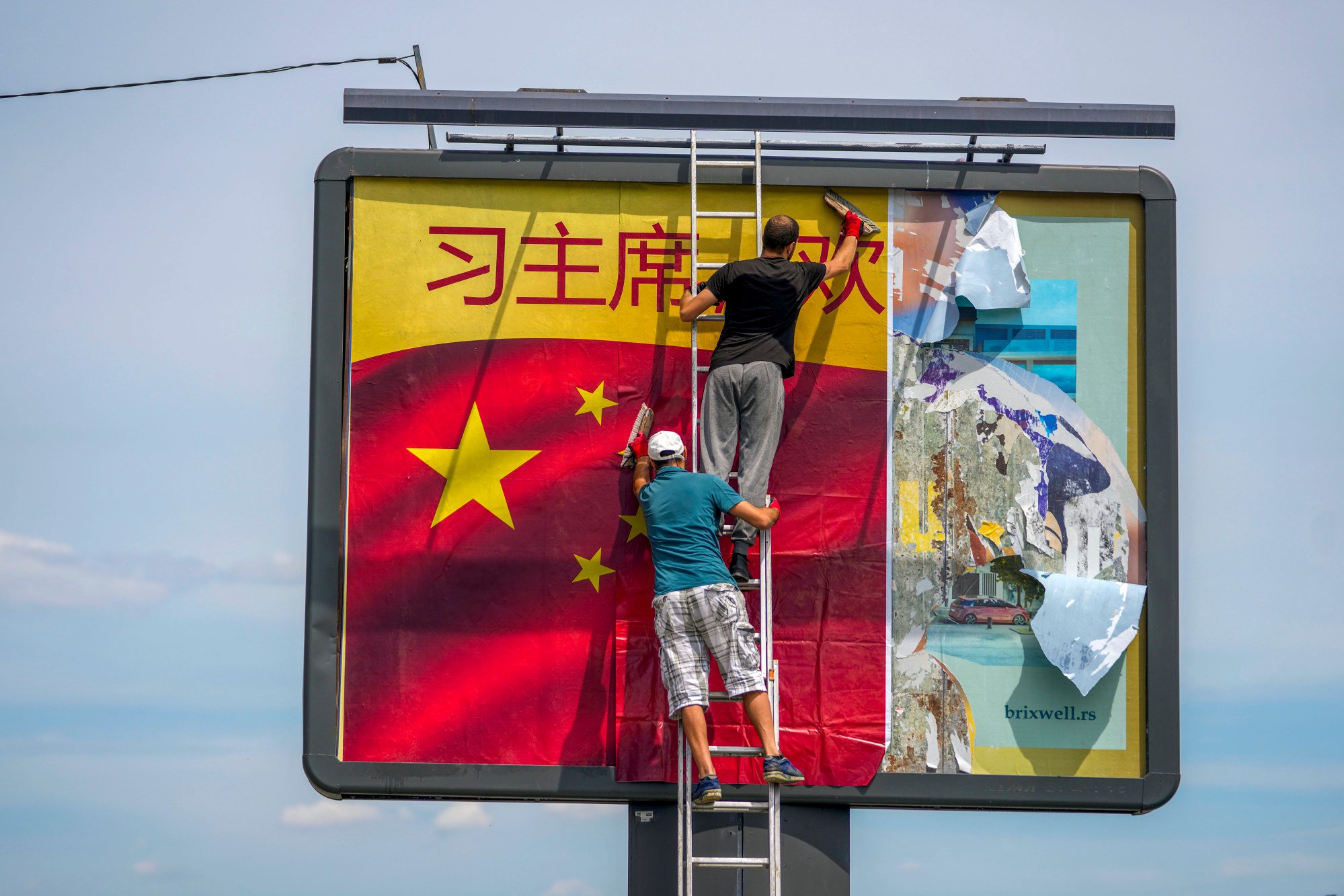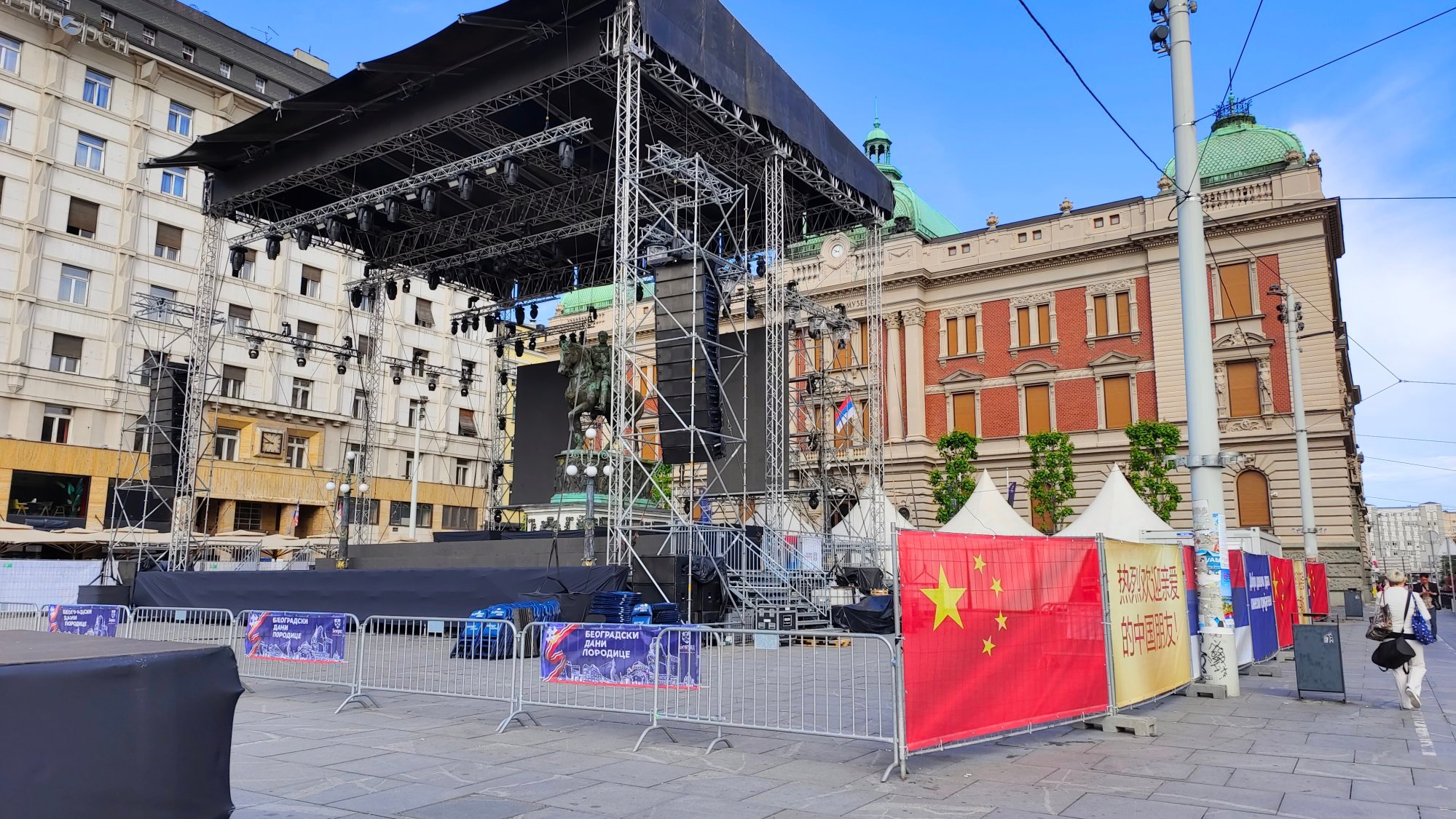
Serbian capital prepares warm welcome for ‘steel friend’ Chinese President Xi Jinping
- The Chinese leader is visiting on the 25th anniversary of Nato’s bombing of the country’s embassy in Belgrade and is expected to pay his respects on Wednesday
- In an article for a local newspaper, Xi wrote: ‘The Chinese people value peace, but they will never allow a historical tragedy to repeat itself’
Serbia is preparing to welcome Chinese President Xi Jinping when he arrives in the country later on Tuesday – the 25th anniversary of Nato’s bombing of the country’s embassy in Belgrade.
Ahead of his arrival from France more than a dozen vans could be seen parked in front of the site of the old embassy building, now a Chinese cultural centre, that is not officially open to the public.
Several overseas Chinese, wearing red caps and badges with the words “China-Serbia Friendship” printed in Chinese characters, were there to prepare for the visit.
According to one staff member, Xi is expected to pay his respects on Wednesday before heading to Hungary for the final leg of the tour.
There are two small monuments at the site. One commemorates the three Chinese journalists killed in the incident, inscribed with the words ‘“honour martyrs, cherish peace” and their names. The other was erected by the city of Belgrade to thank China for its support.
In front of the monument to the victims, a large number of flowers laid by previous visitors had been mostly cleared away, leaving only three baskets.

Although Tuesday was the anniversary of the bombing, the Chinese embassy did not hold a memorial service on the day, as it had done in previous years. Instead many local Chinese residents were expected to greet Xi at the airport when he arrives.
In an article published on the Serbian daily newspaper Politika on Tuesday, Xi referred to the bombing, writing: “The Chinese people value peace, but they will never allow a historical tragedy to repeat itself.”
But in contrast to a similar article published eight years ago, he described it as a “flagrant” act by Nato rather than a “barbaric” one.
On the eve of Xi’s arrival, several of the city’s main streets were decorated with Chinese flags, billboards and banners offering a “warm welcome” to the visitors, including a 21-storey-high Chinese flag on the Western City Gate, a local skyscraper that sits off the main road to the airport.

He later posted on Instagram that he was “proud of our steel friendship with China” and was “convinced that our hospitality will show how much Serbia values the partnership with this great country”.
The visit is taking place amid tight security, with 3,400 police officers deployed on the streets of the capital, according to the Tanjug news agency.
It was also reported on Tuesday that the Chinese delegation will receive a ceremonial welcome in front of the Palace of Serbia, one of the main government buildings, ahead of the signing of more than 30 agreements between the two countries.
In the days leading up to Xi’s visit, a number of individual tourists and groups from China visited the site of the former embassy to pay their respects.
On Tuesday morning these included a group of about 20 people from Beijing.

One man in his 60s bought flowers from a shop in the cultural centre to leave at the scene.
Asked how he felt, he was choked with sobs and said “It’s hard to explain”.
An owner of the flower shop, surnamed Zhuang, said the site draws daily visitors, including Chinese business leaders and tour groups.
“Some people just looked around, some took a picture, some offered flowers, everyone expresses themselves differently,” she added.
On Saturday the visitors included Fu Hong, a young man in early 20s from Sichuan province, who said he was on a month-long tour of the Balkans and Turkey with his girlfriend.
He said they had both wanted to visit the site of the bombing, which happened before either of them was born, but said it was “too frustrating” that the Chinese government had only condemned it in 1999 without taking tougher action.

But when asked about his views on the US and Nato, he said patriotism and economics are “completely different” things, adding: “There’s no young person [in China] now who doesn’t aspire to America. It’s as simple as that.”
Another visitor in his 20s, a man named Kuang from Shenzhen, said he had not known much about the bombing until he read about the site in a guidebook and was disappointed that few traces of the incident remained.
“It would have been nice if it had ruins in place, which might remind people of some more things,” he said, adding that the cultural centre that now stood on the site was “too new”.

